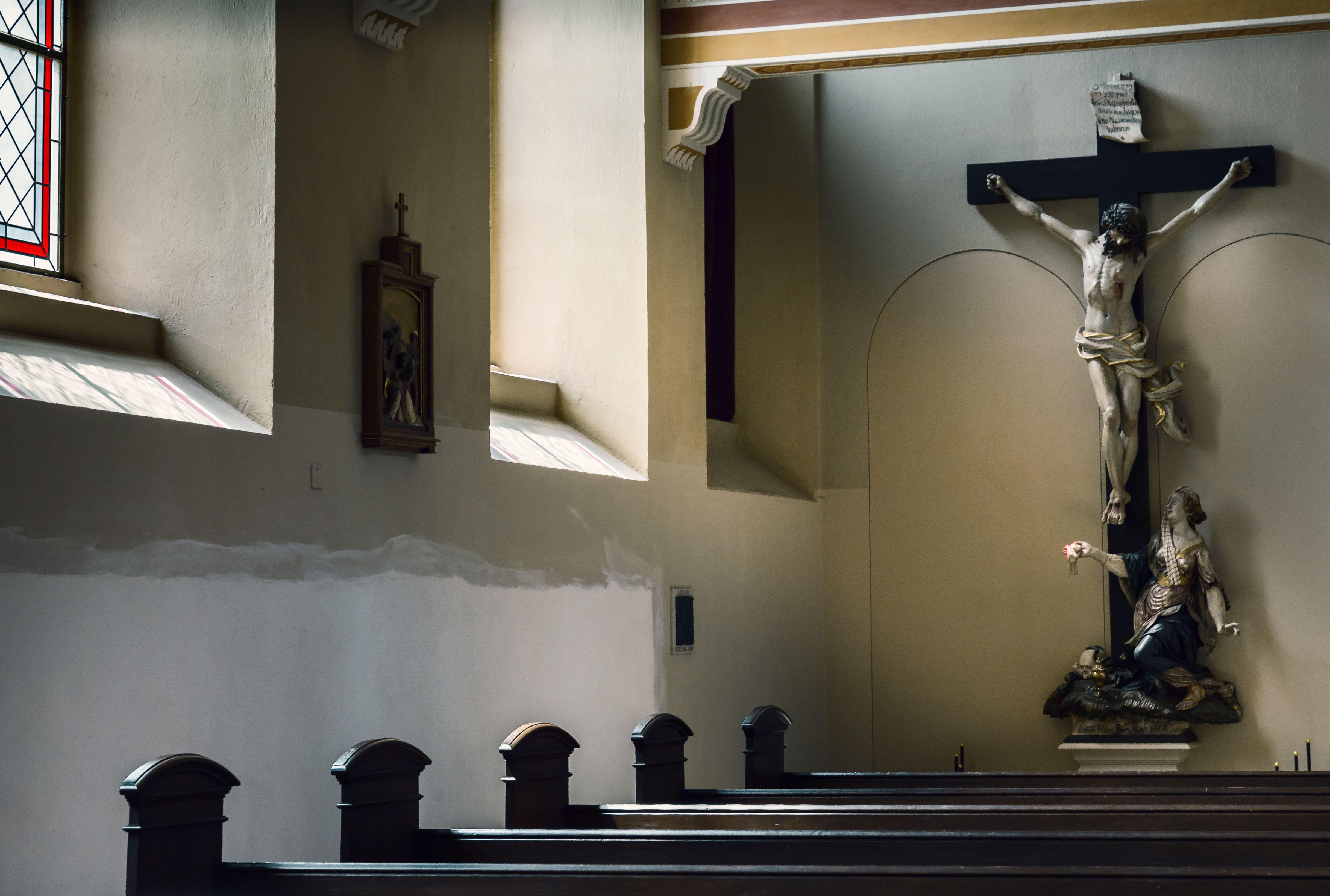If you didn't like the Christian right, you'll really hate the post-Christian right
The secularization of the GOP did not turn out the way progressives wanted


The world is still digesting what the Trump phenomenon means. One common way to understand President Trump's rise is as the Europeanization of the American right. Trump's economic nationalism, blood-and-soil patriotism, and authoritarianism had more to do with Marine Le Pen than with Ronald Reagan.
But Trump's rise heralds a deeper and, I believe, more significant way in which the American right — indeed, American society at large — has become more "European": secularism.
The rise of religious disaffiliation among Americans has been marked by pollsters for well over a decade now. The United States might not be completely secularizing in the European sense — more Americans report a belief in God than almost ever, for example — but religious affiliation among Americans is declining. Belief in God combined with the decline of institutional forms of religion means that Americans increasingly come up with their own, do-it-yourself styles of spirituality, in ways both good and bad. The rise of this DIY spirituality was best analyzed by New York Times columnist Ross Douthat in his book Bad Religion: How We Became A Nation of Heretics.
Subscribe to The Week
Escape your echo chamber. Get the facts behind the news, plus analysis from multiple perspectives.

Sign up for The Week's Free Newsletters
From our morning news briefing to a weekly Good News Newsletter, get the best of The Week delivered directly to your inbox.
From our morning news briefing to a weekly Good News Newsletter, get the best of The Week delivered directly to your inbox.
Indeed, many commentators were stunned that Donald Trump, whose private life embodies pretty much everything Christianity is supposed to despise, could so woo the primary voters of the supposed party of the Christian right. Many commentators put this up to simple hypocrisy, and certainly there was much of that among Christian right leaders. But more profoundly, the rise also had to do with the secularization of the American right. It was noteworthy that the religious leaders who most readily endorsed Trump were representatives of two of the Christian "heresies" that Douthat flags as overtaking traditional Christianity in America: the Prosperity Gospel, which says that God wants Christians to get rich, and what Douthat calls the religion of American nationalism, which identifies America with the promised land of scripture. One consistent finding of the Republican primary was that Trump did much better among self-identified Christians who don't go to church, and much worse among those Christians who go to church regularly.
And as Peter Beinart noted in an important article for The Atlantic, the secularization of the American right might not portend the sorts of changes that progressive commentators who so disliked the Christian right might have wanted.
Writes Beinart:
Read Milo Yiannopoulos and Allum Bokhari's famous Breitbart.com essay, "An establishment conservative's guide to the alt-right." It contains five references to "tribe," seven to "race," 13 to "the West" and "Western," and only one to "Christianity." That's no coincidence. The alt-right is ultra-conservatism for a more secular age. Its leaders like Christendom, an old-fashioned word for the West. But they're suspicious of Christianity itself, because it crosses boundaries of blood and soil. As a college student, the alt-right leader Richard Spencer was deeply influenced by Friedrich Nietzsche, who famously hated Christianity. Radix, the journal Spencer founded, publishes articles with titles like "Why I am a pagan." One essay notes that "critics of Christianity on the alternative right usually blame it for its universalism." [The Atlantic]
Of course, we are all moved by our interests. And we all find ways to lie to ourselves that we base our actions on our values, not naked self-interest. That being said, ideas and values do shape the world. Deep within the human psyche is a strong identitarian impulse, the impulse to self-identify with an in-group and to vilify, and perhaps even destroy, an out-group. Blame Darwin.
A cursory glance at history shows that Christianity is certainly no antidote against this tendency, but the Christian gospel's relentless focus on the intrinsic dignity of every human being, and on Christ's focus on the outcast and the outsider, at least can put a brake on this tendency. For Trump-voting working-class whites, post-Christianity means that the less one's identity is based on the gospel, the more it is based on identity politics, whether nationalist or ethnicist. For Trump-supporting business elites, the Christian gospel might be replaced by the cruel gospel of the proud atheist Ayn Rand.
The progressive dream of secularism entailed the right turning into, essentially, the center-left. Instead, all over Europe, and increasingly America, we see the post-Christian right turning into a nationalist, or even ethno-nationalist, movement.
The secularization of America can have another effect. When America was a majority Christian nation, it was also a less polarized nation. It's hard not to see that Christianity played a role by providing a common language that helped bridge partisan differences. A secularized America is going to have a much more extreme right wing, but also a much more extreme left wing, and fewer ways for them to interact and talk. Welcome to the future.
Sign up for Today's Best Articles in your inbox
A free daily email with the biggest news stories of the day – and the best features from TheWeek.com
Pascal-Emmanuel Gobry is a writer and fellow at the Ethics and Public Policy Center. His writing has appeared at Forbes, The Atlantic, First Things, Commentary Magazine, The Daily Beast, The Federalist, Quartz, and other places. He lives in Paris with his beloved wife and daughter.
-
 The best historical fiction of 2025
The best historical fiction of 2025The Week Recommends Let these compelling tales whisk you away to another century
-
 Taz Sarhane's mallard with pine nut sauce and boulangère potatoes
Taz Sarhane's mallard with pine nut sauce and boulangère potatoesThe Week Recommends Bold duck, crispy potatoes and silky pine-nut sauce come together in this earthy yet refined dish
-
 Cambodian pork and rice recipe
Cambodian pork and rice recipeThe Week Recommends This street-food dish is traditionally eaten for breakfast, but makes a delicious dinner, too
-
 The JFK files: the truth at last?
The JFK files: the truth at last?In The Spotlight More than 64,000 previously classified documents relating the 1963 assassination of John F. Kennedy have been released by the Trump administration
-
 'Seriously, not literally': how should the world take Donald Trump?
'Seriously, not literally': how should the world take Donald Trump?Today's big question White House rhetoric and reality look likely to become increasingly blurred
-
 Will Trump's 'madman' strategy pay off?
Will Trump's 'madman' strategy pay off?Today's Big Question Incoming US president likes to seem unpredictable but, this time round, world leaders could be wise to his playbook
-
 Democrats vs. Republicans: who are the billionaires backing?
Democrats vs. Republicans: who are the billionaires backing?The Explainer Younger tech titans join 'boys' club throwing money and support' behind President Trump, while older plutocrats quietly rebuke new administration
-
 US election: where things stand with one week to go
US election: where things stand with one week to goThe Explainer Harris' lead in the polls has been narrowing in Trump's favour, but her campaign remains 'cautiously optimistic'
-
 Is Trump okay?
Is Trump okay?Today's Big Question Former president's mental fitness and alleged cognitive decline firmly back in the spotlight after 'bizarre' town hall event
-
 The life and times of Kamala Harris
The life and times of Kamala HarrisThe Explainer The vice-president is narrowly leading the race to become the next US president. How did she get to where she is now?
-
 Will 'weirdly civil' VP debate move dial in US election?
Will 'weirdly civil' VP debate move dial in US election?Today's Big Question 'Diametrically opposed' candidates showed 'a lot of commonality' on some issues, but offered competing visions for America's future and democracy